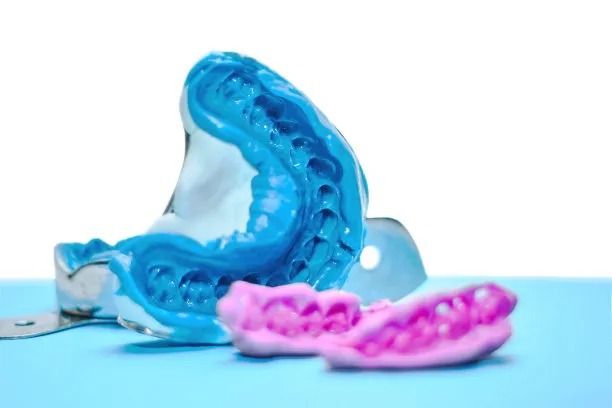Summary: Extracting a tooth is a significant experience that invokes a range of emotions, from anxiety and fear to relief and healing. This article guides you through the emotional journey associated with tooth extraction, detailing what to expect at every stage: before, during, and after the procedure. We will explore the feelings and thoughts commonly experienced, the role of dental professionals in addressing these emotions, practical strategies to manage anxiety, and the importance of post-procedure care. By understanding these aspects, patients can navigate the emotional landscape more effectively, ultimately leading to a smoother experience and better outcomes.
1. Anticipating the Emotional Responses

Before the extraction, patients often feel various emotions, primarily anxiety and fear. The anticipation of pain, the unknown aspects of the procedure, and concerns about the recovery process can weigh heavily on one’s mind. Understanding these feelings is the first step in addressing them.
Research suggests that many patients imagine the worst-case scenario regarding pain and discomfort during the procedure. This often leads to heightened stress. Openly discussing concerns with the dentist can significantly ease these fears, as dental professionals can clarify what to expect.
Additionally, patients might experience feelings of dread related to the dental environment. Many people associate dental clinics with discomfort, which can compound pre-extraction anxiety. Awareness of these emotional responses can help patients prepare better and manage fears effectively.
2. The Procedure and Emotional Impact
During the tooth extraction procedure, emotions typically fluctuate. Initially, there might be intense anxiety as patients settle into the dental chair. Once sedation or local anesthesia is administered, a sense of relief often replaces fear as physical sensations diminish.
However, its crucial to remember that some patients may still feel unease even during the procedure. Factors such as sounds or the sensation of pressure can still provoke anxiety. Dentists often use calming techniques and communicate throughout the procedure to reassure patients, making the experience less daunting.
Understanding that feeling vulnerable while in the dental chair is common can also help. Many find comfort in knowing that they are in the hands of trained professionals. This acknowledgment can transform that fear into trust, allowing patients to focus on the end goal rather than the uncomfortable moments during the procedure.
3. Coping with Post-Extraction Emotions
After extraction, emotional responses can vary widely. Many patients feel relief that the procedure is over, particularly if they endured long-term discomfort. However, feelings of sadness or anxiety may surface regarding healing time and lifestyle changes during recovery.
Physical sensations such as pain and swelling can influence emotional wellbeing. Effective pain management strategies, including prescribed medications and home remedies, are critical in maintaining comfort and enhancing the emotional experience post-extraction.
Support from family and friends can significantly improve recovery. Having someone to talk to about fears surrounding healing or dietary adjustments can alleviate emotional burdens. Patients are encouraged to openly share their feelings, creating an environment of support that fosters emotional healing.
4. Importance of Aftercare and Emotional Wellbeing
The post-procedure period is essential not only for physical healing but also for emotional recovery. Taking care of oneself through proper aftercare and following the dentists recommendations can help instill a sense of control and normalcy.
Participating in light activities, such as listening to music or reading, can serve as a distraction from discomfort, allowing emotions to stabilize. It’s important for patients to remember that healing takes time, and feeling a mix of emotions during this period is perfectly normal.
Establishing a routine that includes rest, hydration, and good nutrition can promote not just physical healing but also emotional resilience. Encouraging self-compassion during recovery can lead patients to a better understanding of their emotions, ultimately fostering a healthier relationship with dentistry in the long run.
Summary: The emotional journey of tooth extraction is multifaceted, involving anticipation, experience during the procedure, and recovery emotions. By acknowledging and preparing for these feelings, patients can navigate the process more effectively. Establishing communication with dental professionals and engaging in self-care strategies can transform the experience, turning anxiety into positive outcomes.
This article is compiled by Vickong Dental and the content is for reference only.
Vickong Dental
Vickong Dental is a large medical group established in Hong Kong in 2008 by professors from well-known medical universities in Guangdong and Hong Kong, as well as medical doctors from key national '985' universities (including Master's supervisors and senior professors). The chain of branches brings together expert dentists with PhDs and Master's degrees from Hong Kong and Mainland China, committed to providing high-quality dental treatment.
"Vickong Dental Practices the University Motto of 'Healing and Serving Society,' with a Stable Operation for Sixteen Years. It Has Been honored with Hong Kong Enterprise Leaders's Choice,' and is a Global Trusted Implant Center for the Nobel Implant System. Recommended by Hong Kong Metro Broadcast and Guangdong Television, it Serves Customers from Over Thirty Countries and Regions, Gaining the Trust and Favor of Citizens from the Guangdong-Hong Kong-Macau Greater Bay Area and Surrounding Cities.

Thousands of customers' unanimous praise
The most recognized and highly recommended dental service by customers in the Guangdong-Hong Kong-Macau Greater Bay Area
We Ensure You Receive Detailed Care and Attention Here
Hong Kong standards, Shenzhen prices, Your Trusted English-speaking dentists

Vickong Dental Medical-Grade Instrument Disinfection Process
Vickong Dental Medical-Grade Instrument Disinfection Process

Vickong Dental Chain: A Warm and Comfortable Environment for Treatment






Appointment Hours

Q&A
Why choose Vickong Dental?
Vickong Dental practices the university motto 「Medicine to Benefit Society」, with each branch bringing together highly qualified dentists with doctoral and master’s degrees from Hong Kong and the Mainland, and has maintained seventeen years of steady operation。Recipient of 「2024 Hong Kong Enterprise Leaders Brand」, 「2025 Hong Kong Enterprise Leaders Brand」, a Nobel Biocare Global Trusted Implant Center, and a brand recommended by Metro Radio Hong Kong and Guangdong TV。
To date, we have served customers from more than thirty countries and regions,earning exceptionally high word-of-mouth recognition and trusted recommendations from residents across the Guangdong-Hong Kong-Macao Greater Bay Area and surrounding cities
We have eight major branches in Zhuhai、Shenzhen,and a consultation and service assurance center in Hong Kong,so you can book a free consultation at any time for any questions,which is very reassuring.
If I do not accept the quotation after the CT scan, will I be charged??
No! As long as the actual treatment has not started, you will not be charged any fees.
Will there be any additional charges during the treatment process?
No, there won’t be any additional charges. Before treatment begins, we will clearly explain the treatment plan and its corresponding fees. Only after the patient agrees and signs the consent form will we proceed with the dental service.
Can I pay in Hong Kong dollars?
Yes. Vickong Dental accepts payment in Hong Kong dollars. The amount will be converted based on the exchange rate of the day, and the applicable rate will be clearly communicated to you in advance.
Can I reschedule my appointment at any time?
Yes. Please contact us via **WeChat** or **WhatsApp** as early as possible, providing your original appointment time and details, along with your preferred new date and time slot for rescheduling.













